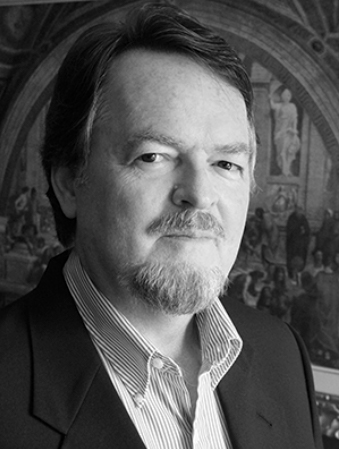The Gospel of God the Father
by | Posted February 18th at 4:39am
Now after John was arrested, Jesus came into Galilee, proclaiming the gospel of God, and saying, “The time is fulfilled, and the kingdom of God is at hand; repent and believe in the gospel.” (Mark 1:14-15)
The gospel of God (Mark 1:14–15) If the intratrinitarian love of God is a crucial theme within our text, we also need to draw together the wider themes related to the Messiah’s mission and how they illuminate the love of God. 1
In verse Mark 1:14 we are told Jesus went into Galilee, proclaiming the good news [gospel] of God. This wonderful phrase shows how Mark links the Gospel interchangeably to God or Jesus Christ (Mark 1: 1). In other words, the story of Jesus described above is very good news about God.
What is this good news? Perhaps I can explain it this way. There is a tension running through the prologue of Mark, and Mark 1:11 in particular, between the transcendence and immanence of God. Transcendence means that God is utterly distinct from his creation. Immanence captures how God is near and present, intimately involved within the world. Both are, in different ways, sources of very good news.
First, transcendence. In verse 11 God is in heaven, his ‘dwelling place: a different dimension of reality from the physical universe. It is only when heaven is ‘split’ open that the voice of God is heard. Mark’s description gives readers a glimpse of the glorious ‘otherness’ of almighty God. In other words, ‘behind the scenes’ God is reigning.
As the Son literally steps out of the Jordan in faith he is affirmed in his identity and mission. The Father is with him and anoints him with his Spirit. The presence of Father and Spirit remain with him in all the darkness to come. If the transcendent love of the Father and the empowering of the Spirit are good news for Jesus, they are also good news for Christians today. Obviously the parallel is not exact: Jesus has a unique relationship with his Father. He alone is the anointed king and Messiah. But there is encouragement here for us nonetheless. Jesus announces that The time has come … the kingdom of God has come near. Repent and believe the good news! (Mark 1:15).
As Acts later makes clear, God has now poured out his Spirit for all who respond in faith and repentance to the good news of the resurrected Son (e.g. Acts 2:38). Therefore, whatever trials we face in our daily lives, the ‘otherness’ of our transcendent God is a source of hope and comfort. Whether we are wrestling with cancer, broken relationships, grief, spiritual opposition, injustice or long-term unemployment, we can be encouraged that this world is not all there is: it is the gospel of the transcendent God that will have the last word.
Second, God is also immanent (here with us). God loves Israel passionately. He is also deeply angered by sin. Neither is he passive. In Mark the dramatic arrival of Israel’s Messiah is God’s (utterly unexpected) means by which to heal the story of our broken world by God’s fulfilled promise to Israel – he is working within history to bring forgiveness and hope, via a king establishing his kingdom here on earth and who is powerfully present in the world through his Spirit.
Most astonishingly of all, he through the incarnation and mission of his beloved Son, God shows us his utter commitment to this broken world. Jesus becomes vulnerable to hunger and temptation in the desert. Ultimately, as a human saviour, he allows himself to be vulnerable even to suffering and death. God has, in Christ, and through the Spirit, ‘come down’ to us.
The Father is well pleased Mark 1:11 to send his Son on such a mission because his endgame is blessing. Charles Wesley’s great words capture perfectly this paradox of the limitless transcendent love of God being embodied in his Son:
Love divine, all loves excelling, joy of heaven, to earth come down, fix in us thy humble dwelling, all thy faithful mercies crown. Jesus, thou art all compassion, pure, unbounded love thou art; visit us with thy salvation; enter every trembling heart.
All this tells us astonishing good news about the God we worship: Father, Son and Spirit. Mark, does not spell this out, but invites his readers to think of ‘God’ through a new lens. He is at once totally, transcendant ‘other’ and, at the same time, immanently ‘present’ in the beloved Son whose mission leads to the cross.
Richard Hays suggests that ‘if we have rightly followed Mark’s narrative clues about the identity of the one on the cross’, the most appropriate response is ‘reticent fear and trembling’—where ‘we stand before the mystery in silence, to acknowledge the limitation of our understanding, and to wonder’. We would be wise to take this into account as we live our lives here on earth in what is actually a probabtionary period before the Second Advent of Jesus Christ who will ultimenty judge each of us according to our ways, words and deeds.
Learn about God’s Love; The New Covenant Manifesto of God’s Love
1 The insight into the Trinity by Patrick Mitchell is highly recommended,:The Message of Love: The Only Thing That Counts, ed. Derek Tidball, The Bible Speaks Today (London: Inter-Varsity Press, 2019), 101–103.

Article posted by Glen R. Jackman, founder of GraceProclaimed.org
Glen has optimized his eldership role to teach the full scope of the New Covenant of Jesus Christ without
boundaries.
You can read his testimony.